Charles Donahue Lecture Provides a Peek into the Future of Healthcare.

Marcela del Carmen delivers the 2025 Charles Donahue Lecture in Keefer Auditorium on October 28. PHOTO: MEGAN JONES
Charles Donahue Lecture Provides a Peek into the Future of Healthcare
Speaker Marcela del Carmen, president of Massachusetts General Hospital, president of the Massachusetts General Physicians Organization, and executive vice president of Mass General Brigham (MGB), discussed MGB’s vision for integrating systems to improve patient outcomes.
When Dr. Marcela del Carmen accepted her current roles in healthcare administration at Mass General Brigham (MGB)—president of Massachusetts General Hospital (MGH), president of the Massachusetts General Physicians Organization (MGPO), and executive vice president of MGB—she did so on the condition that she could continue seeing patients as a practicing gynecologic oncologist.
Del Carmen trained for nearly two decades for the privilege of supporting patients through some of the most harrowing periods in their lives. She says honoring that role gives her the utmost satisfaction. Although she does not have children of her own, del Carmen likens giving up patient care to giving up her firstborn, something she would never dream of. What is more, continuing to practice medicine allows her to witness firsthand how the changes she orchestrates at the system-wide level affect individual clinicians and patients— an invaluable perspective as she strives to realize MGB’s vision for “the integrated healthcare system of the future.”
Del Carmen shared this vision and MGB’s progress towards realizing it with students, faculty, and staff from SPH and the wider BU communities on October 28 as the 2025 Charles Donahue Lecture speaker.
“I would argue, as the young people that you are, who are the next leaders in public health, that you should invite yourselves always to look at systems that you’re working in—and be disruptive,” she advised the audience gathered in Keefer Auditorium. “We do not evolve, and we do not change unless we are able to innovate and essentially disrupt what we have. Hold on to the parts of the structure that allow you to do your work, but don’t be afraid to innovate and disrupt the other parts of that experience that are holding you back.”
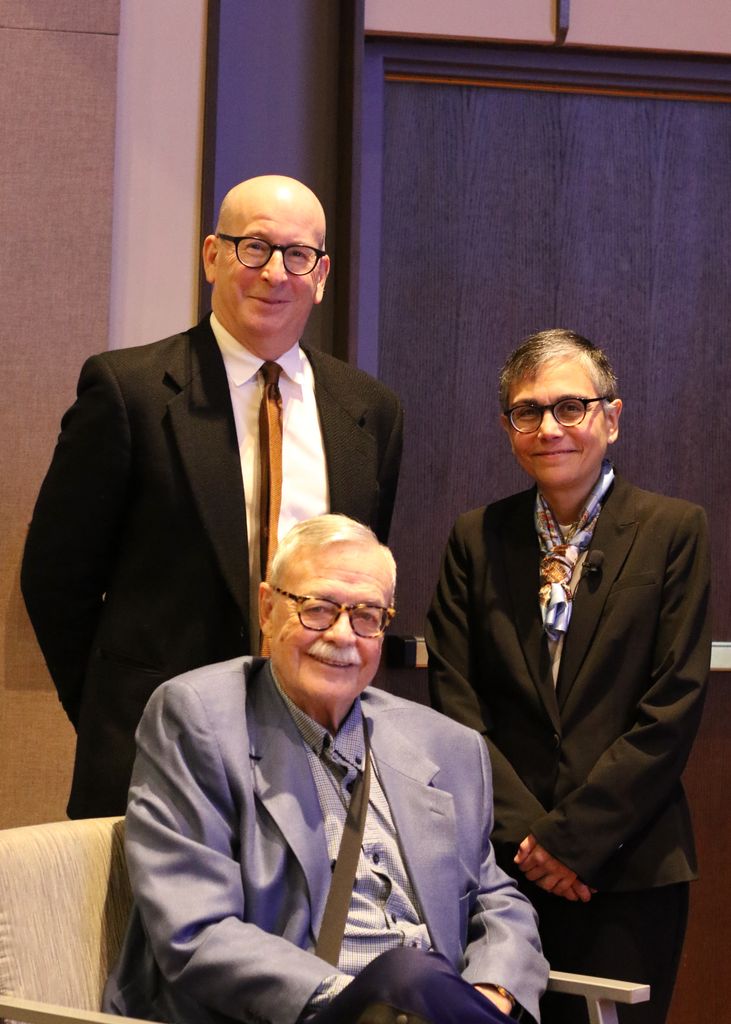
The annual Charles Donahue Lecture is made possible through a generous donation from Charles and Nancy Donahue, the parents of 2012 SPH alum Carolyn Donahue.
Charles Donahue is the former president and co-founder of Healthcare Value Management in Norwood, Mass., which he helped build into New England’s largest network of health care providers used by self-funded preferred provider organization (PPO) insurance plans. He has more than four decades of experience in health care system planning and management, and he has frequently supported practicum opportunities and job placements for SPH students within the Greater Boston area.
Each year since the lecture was first established in 2018, the Department of Health Law, Policy & Management (HLPM) has collaborated with the Donahue family to invite a distinguished speaker to discuss the quality of patient care, the measurement of healthcare outcomes, and the development of better health systems and policy in the United States. Michael Stein, chair and professor of the HLPM department, opened Tuesday’s event by providing introductions to the Donahues and del Carmen, noting that del Carmen is the fifth speaker to deliver the lecture.
Del Carmen graduated from Johns Hopkins School of Medicine, completing her residency in obstetrics and gynecology at Johns Hopkins Hospital, followed by a fellowship in gynecologic oncology at MGH and an MPH from the Harvard T.H. Chan School of Public Health. She is the first woman and Latina to achieve professorship in both OBGYN and gynecologic oncology at Harvard, where she has received numerous honors for excellence in teaching and clinical practice.
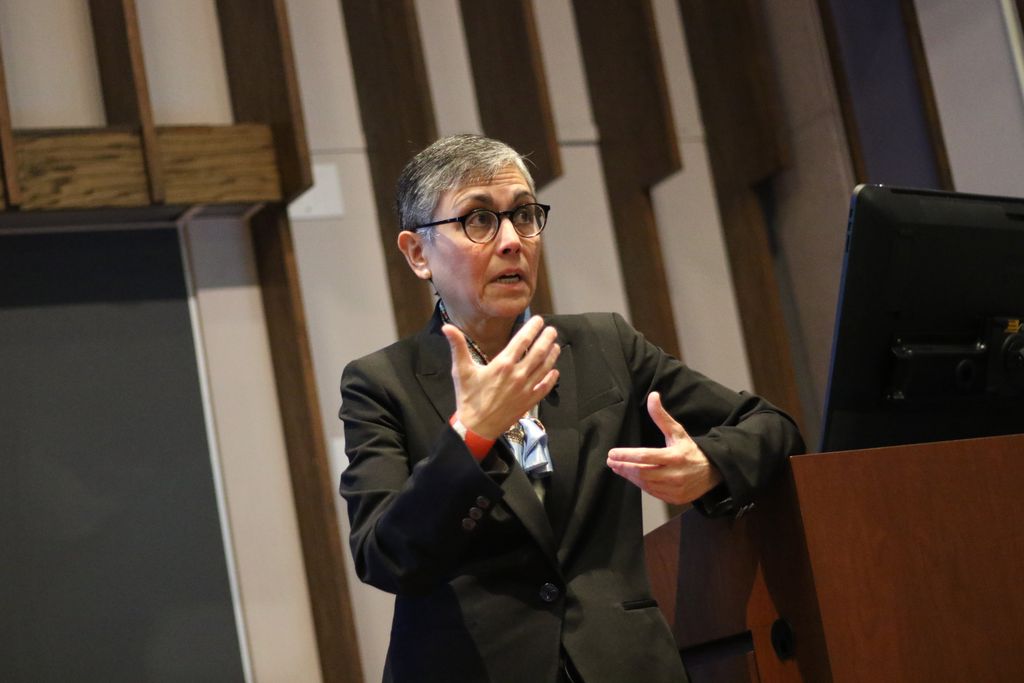
Del Carmen began her remarks by acknowledging the challenges facing those who seek to improve the health of populations. While MGB is a massive institution serving tens of thousands of patients, she said, it has also been tested by “legacy stressors” that recently have become “even more unsustainable.”
“We have financial pressures that were there before COVID, but they have become insurmountable and even more of a challenge after COVID. It has to do with labor costs and inflation rates that we cannot keep up with. The delivery of healthcare is the one industry where you cannot transfer the cost of care to the consumer, who is the patient,” said del Carmen. “Just to give you an idea, in the last five years, the inflation rate has probably surpassed 17% and most private insurance companies are basically reimbursing at the rate of 2%.”
In addition to rising healthcare costs, del Carmen also pointed to the loss of National Institutes of Health funding for research, an increased administrative burden to document patient encounters thoroughly (especially since a 2022 federal mandate gave patients the right to access all information in their medical records), and the persistence of antiquated hospital policies and structures that at times slow communication and hinder efficient patient care.
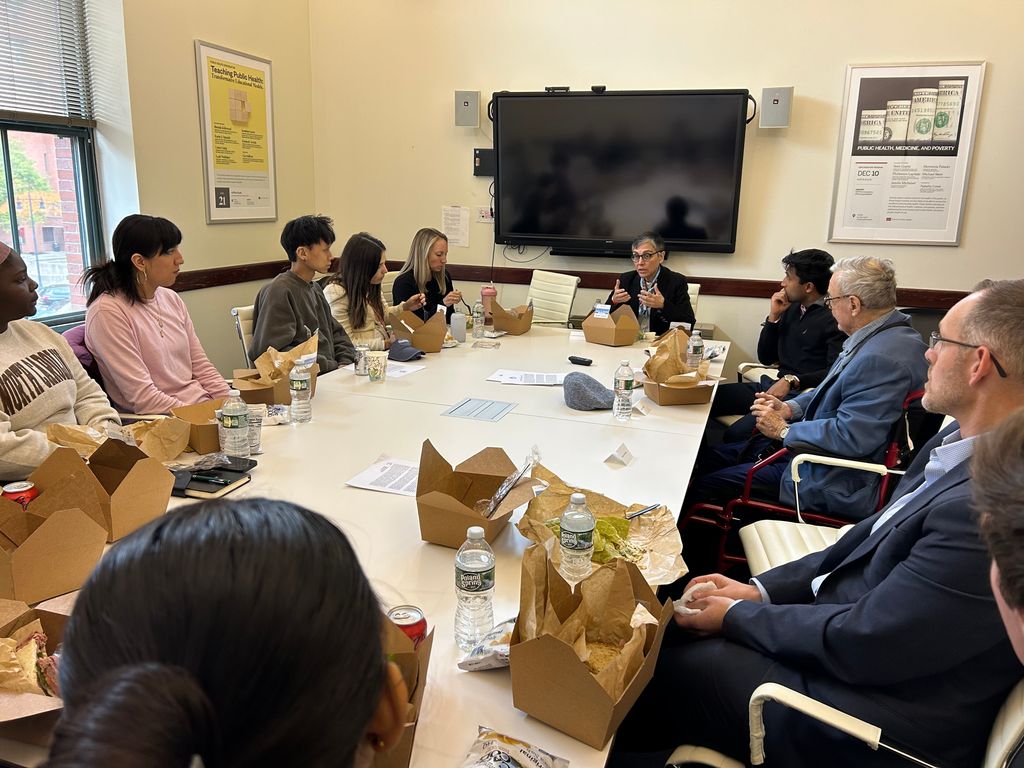
“As a physician, I like to think the anatomy that we have is no longer a good fit for the physiology of an evolving system that needs to have more agile and adaptive structures to actually meet the needs of healthcare delivery today,” said del Carmen. In response, MGB set a goal to integrate care through a strategy of unification involving teams aligned around a single goal, following discrete strategies and tactics to achieve it and clear metrics to measure progress. Del Carmen provided MGB’s progress in implementing an early warning system to reduce hospital mortality rates as an example.
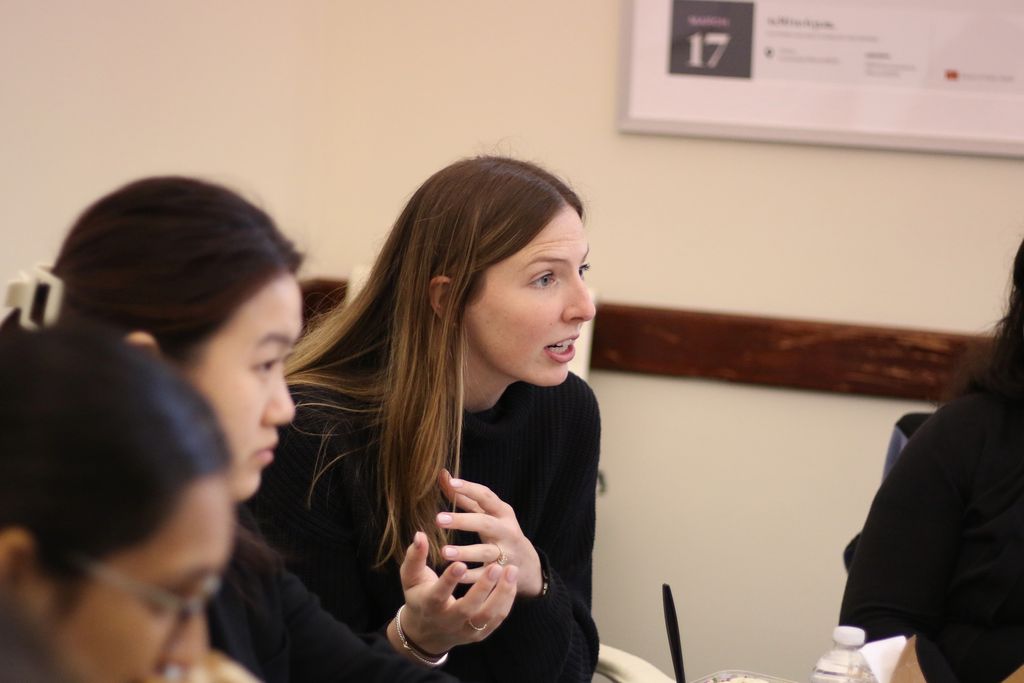
“Medicine is very hierarchical and the way that we’re taught [in training] is that you always call the nurse, [the nurse] calls the intern, the intern calls the second-year resident, and by the time that the faculty member is aware that there’s been a change in the patient’s status, it may actually be hours [that] have passed,” said Del Carmen. “So, we actually created a change in culture where our clinicians, including the nurses, were enabled and actually required to escalate the care of the patient to the highest responsible clinician.”
If there is concern for sepsis, for example, the team follows a standardized algorithm. If a patient’s blood pressure drops or their pulse begins to rise—early signs of the dangerous, systemic infection—then the concern is escalated to the attending physician, and the team meets to make decisions as to whether to order imaging, whether to provide antibiotic coverage, whether to transfer the patient to the intensive care unit, etc. These steps ensure that the opportunity to make a significant difference early in the patient’s illness is not missed. As a result of the early warning system and other similar updates, MGB’s quality metrics have responded in kind, reported del Carmen. Since 2024, for example, MGB’s mortality rate has steadily dropped below the national average.
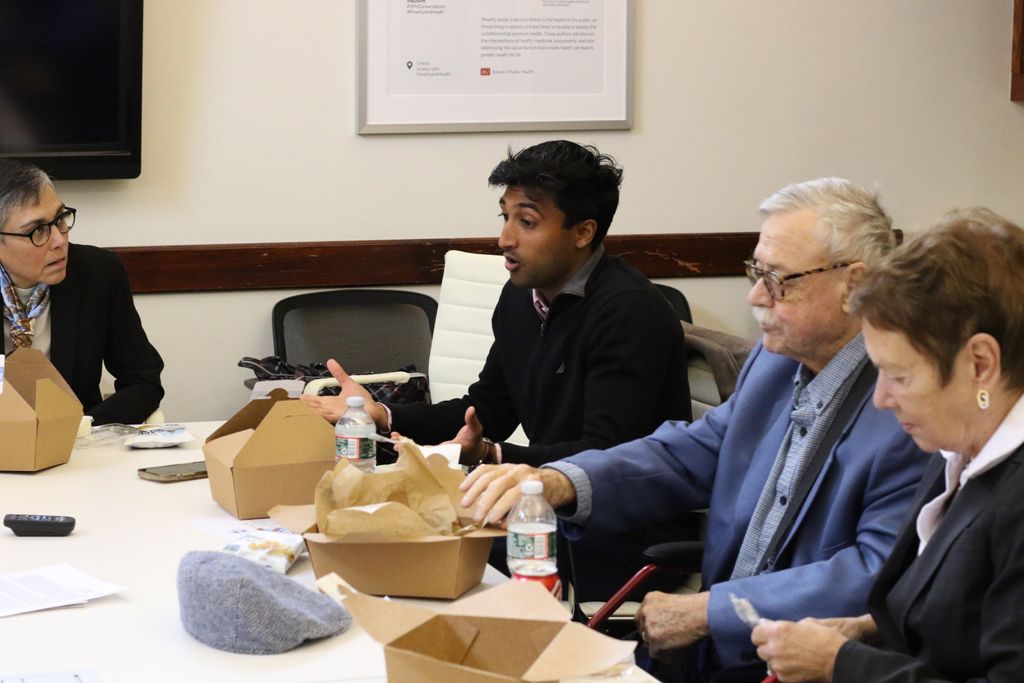
“Putting ourselves through a change in structure and management has allowed us to bend that curve to where we are today,” concluded del Carmen. “The last few years for me as part of the team that was at the forefront of change management have been an incredible journey that, at the end of the day, anchors me to the reason that I want to be a doctor […] which is to improve the lives and the health of others. I think that what you’ve seen here is the opportunity that you have from the sector of public health to engage in this work—there is an intersectionality between what I do as a doctor and what you do in service of the public health space and domain.”
